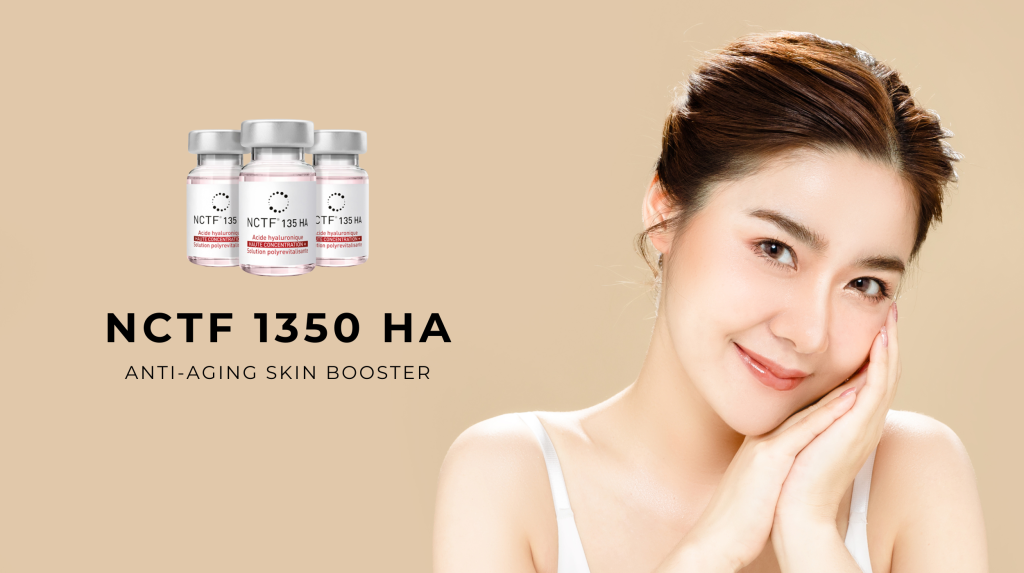Everything You Need to Know About CHANEL INJECTION

What is CHANEL Injection?
CHANEL Injection is a luxurious, cutting-edge cosmetic treatment designed to rejuvenate the skin, giving it a smoother, more youthful appearance. This injectable procedure uses advanced techniques to target common skin concerns like wrinkles, fine lines, and volume loss. Unlike many other cosmetic treatments, CHANEL Injection combines innovative ingredients with exceptional results, making it a popular choice among those seeking a high-end, effective solution.
What are the ingredients in NCTF 135 HA?
NCTF 135 HA contains hyaluronic acid, 14 vitamins (including A, B, C, and E), 24 amino acids, 6 coenzymes, 5 nucleic acids, 2 reducing agents, and 4 minerals. This blend is specifically designed to promote skin health and rejuvenation.
Is Chanel injection a filler?
No, Chanel injection (NCTF 135 HA) is not a filler. It’s a mesotherapy product that revitalizes and hydrates the skin but doesn’t add volume like traditional fillers. Its main function is to improve skin quality and smoothness.
Benefits of CHANEL Injection ;
1. Youthful, Radiant Skin – CHANEL Injection helps to restore volume and smooth out wrinkles, making the skin look plump, fresh, and youthful.
2. Non-Surgical – Unlike facelifts or other invasive procedures, CHANEL Injection offers a non-surgical solution with minimal recovery time.
3. Long-Lasting Results –One of the key benefits of CHANEL Injection is the longevity of its effects, providing visible improvements that can last several months.
4. Natural-Looking Outcome –The procedure is designed to offer subtle yet effective results, ensuring a natural appearance without an overly “done” look.
5. Minimal Downtime – Most patients can return to their regular activities almost immediately after the procedure, making it ideal for busy individuals.
Who is Suitable for CHANEL Injection?
CHANEL Injection is suitable for a wide range of individuals who are looking to rejuvenate their skin without undergoing invasive surgery. It is ideal for:
– Individuals in their 30s to 50s
Those who are beginning to see the early signs of aging, such as fine lines and loss of volume, can benefit greatly from this treatment.
– Anyone Looking for a Non-Surgical Option
If you’re hesitant about going under the knife but want visible results, CHANEL Injection offers a non-invasive alternative.
– People with Busy Lifestyles
Due to its minimal downtime, those with active lifestyles or hectic schedules can enjoy the benefits of CHANEL Injection without disrupting their routine.
However, it’s important to consult with a certified professional before proceeding, as the treatment may not be suitable for individuals with certain medical conditions or allergies.
Downtime and Recovery
One of the key reasons people opt for CHANEL Injection is the minimal downtime required. Most individuals experience little to no recovery time after the procedure. Here’s what to expect:
– Immediate Results
After the treatment, you may notice instant improvements in skin texture and volume, although some swelling or redness can occur.
– Minimal Swelling or Bruising
Any swelling or bruising should subside within a few hours to a few days.
– Back to Daily Life
Most people are able to return to work and resume normal activities right away. It’s important to avoid vigorous exercise or direct sun exposure for the first 24 to 48 hours post-treatment.
Patients should follow the aftercare instructions provided by their practitioner to ensure the best possible results.
How often do you get a Chanel injection?
Chanel injections (NCTF 135 HA) typically require an initial series of treatments spaced about two to four weeks apart, usually totaling three to five sessions. After the initial series, maintenance treatments might be recommended every six months to preserve the skin’s improved quality.
How long does Chanel skin booster last?
The effects of a Chanel skin booster (NCTF 135 HA) can last anywhere from three to six months, depending on the individual’s skin type, age, and lifestyle factors. Regular maintenance sessions help sustain the benefits over time.
